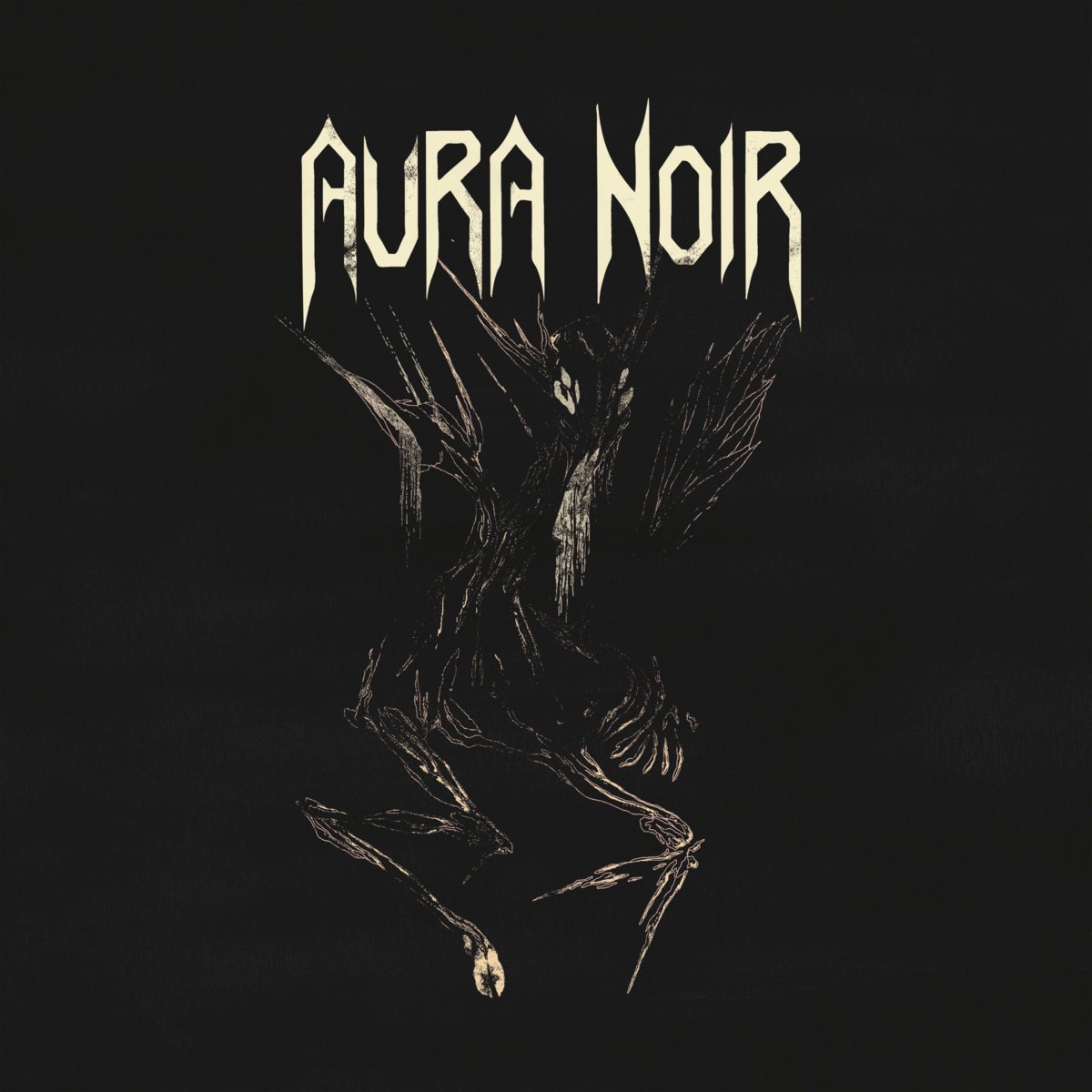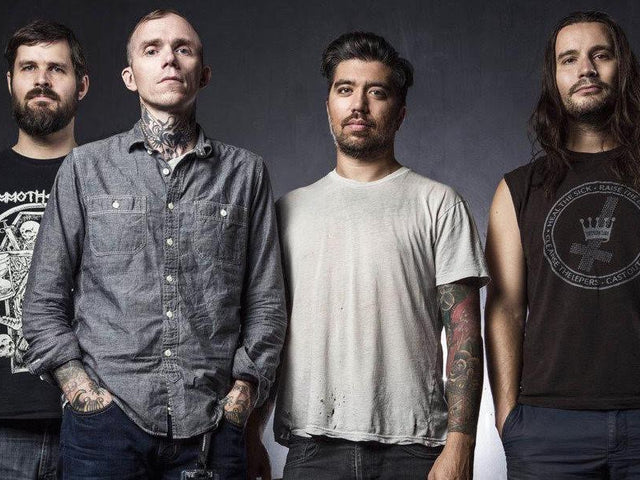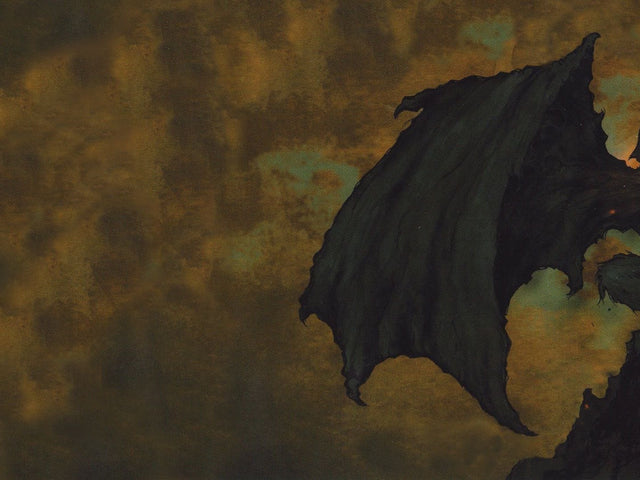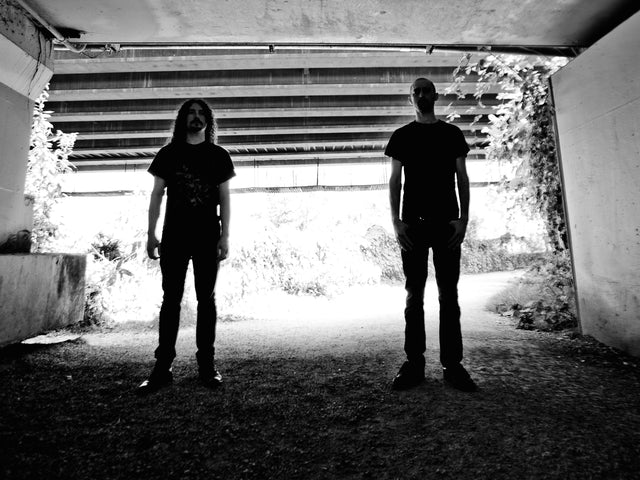Deaf Forever adalah kolom metal bulanan kami, di mana kami mengulas yang terbaik dalam doom, black, speed, dan semua jenis metal lainnya di bawah sinar matahari.

Ails: The Unraveling (The Flenser)
American black metal is still having a moment even as the late 00s are long in the rearview, yet a lot of us still aren’t over Ludicra breaking up back in 2011. As one of the first significant post-Weakling black metal bands in the Bay Area (and the US as a whole), Ludicra brought an urbanity previously unexplored, in their rough-hewn melodies and their lyrics that dispensed the fantastical for the gray and relentlessly bleak. Since their breakup, guitarist John Cobbett and drummer Aesop Dekker went on to form ultra-metal band VHÖL, and Dekker also kept busy in Agalloch, Extremity, and Worm Ouroboros. Vocalist Laurie Sue Shanaman and guitarist Christy Cather haven’t been as active, but they’ve finally made their grand return with Ails. Their debut The Unraveling picks up right where The Tenant, Ludicra’s final album, left off, like gentrification stopped dead in its tracks. Cather reveals her debt to Sweden’s evil melodies, particularly the breathtaking tundras of Dissection, and she slathers them in grime while leaving their grandeur peeking out. Opener “The Echoes Waved” captures the allure of desperation in particular, capturing a hopelessness that feels even more resonant now. It highlights what made Ludicra so beloved: it’s both a faceplant into the unforgiving concrete of life and an escape, something to blast when that scumbag your roommate’s hooking up with is over again. Even without Dekker’s punk heart, Unraveling is direct in a way that a lot of black metal records aren’t. Melodies take time to reveal themselves, yet do not overstay. The vortex it thrusts you in looks familiar, and you recognize the buildings and chattering masses enclosing on you, and they’re no less disorienting. Ludicra are dead, long live Ails.

Ghastly: Death Velour (20 Buck Spin)
There’s a lot of killer old school death metal out right now, and there’s absolutely nothing wrong with that. I’ve covered it plenty here, because anything to get the kids away from indie is worth championing. Sometimes, you don’t want the same old Autopsy and Obituary worship, you want something a little freakier, a little weirder. You have to go to Finland to take a hard left on the left hand path, and Ghastly put a serpentine spin on the old school with their second album Death Velour. There are spindly, ghostly melodies that recall the proggy black metal of Negative Plane and Occultation, which make the record feel plush as its name indicates. “Plush” is not how you would normally want your death metal, The Magic of Severed Limbs” takes that in doomier plains, like if Trouble gave up Christianity but not their apocalyptic obsession. Piano floats in and out, draped in silk and seemingly having shown up to the wrong seance (plush and silk as death metal descriptors? 2018 is really on one.) yet clicking with the guests instantaneously. “Scarlet Woman” closes the record and it’s them at their weirdest, contorting NWOBHM beauty into something ugly and psychedelic yet still ultimately beautiful. It’s a prog suite for long hairs who wear frilly shirts opening to flat, rich plains of stomachs and look like gods even after not showering for weeks. Velour is one of 2018’s sleeper hits, an unexpected death metal gem where perversion is woven in fine detail instead of vomited out all over the place.

Aura Noir: Aura Noire (Indie)
Aura Noir are a Norwegian black-thrash institution, where notable black names like ex-Immortal bassist Apollyon and ex-Mayhem guitarist Blasphemer got their start. The oddly named, not exactly self-titled Aura Noire — there’s a long-lost French black metal band named Aura Noire, and the two likely never crossed paths — is just the venomous and Venom-loving attack you’d expect. Vocalist and guitarist Carl-Michael Eide, known as Aggressor here, is a cult figure for his progressive streak in Ved Buens Ende and Virus, and while Aura Noir is much more straight-up metal than either, he can’t shake off the prog. You can hear flecks of Voivod all over his riffing, offering a middle ground between the Canadian legends’ more savage beginnings and the prog-thrash juggernaut they would become. Nothing is way out of line but nothing is stock either, they maintain the right balance of familiarity and unpredictability. “Demoniac Flow” is their most Voivod-worshipping, with little squeaks and twists that almost bring Piggy back from the dead. “Cold Bone Grasp” is another highlight, like if Iron Maiden’s early streetwise sound got into a brawl with a d-beat band. (Come to think of it, that could also describe Darkthrone’s aesthetic as of late.) Aura Noir’s roots in the crazier end of 80s thrash is probably why they put out better material than some of the black metal bands their members are associated with — this record might fly by if you’re not deep into thrash, and it shouldn’t be overlooked.

Power Trip: Opening Fire: 2008-2014 (Dark Operative)
Power Trip dominated metal last year, but it’s important to know that they didn’t come from nowhere. They’ve been a band for a decade at this point, and it’s only been recently that it’s been paying dividends. Even as scrappy upstarts, they were tearing up Texas pits and making thrash that didn’t fit the “thrash revival” profile long before the package tours came calling. Opening Fire collects from the band’s self-titled 7-inch, The Armageddon Sessions EP, and appearances on the America's Hardcore and The Extermination: Vol. 2 compilations. The NYHC influence is much more apparent in their earlier days, and they especially take from its Texas-bred spin from Austin’s greatest band of all time (suck it, Spoon) Iron Age. They cover Prong’s “Brainwave” on the self-titled EP and that group in particular is all over these recordings, providing a template to build and conquer with. While the songs get a sonic boost from the group’s producer and in-name metal knobsmith Arthur Rizk, the youth isn’t lost. They may have not figured it out entirely, but they were pretty far ahead of the pack from the start. That’s how Metallica came into the game with Kill ‘em All, and they turned out pretty OK in the end.
Editor’s note: Andy is reviewing Sleep’s new album for a different publication, so I’m gonna step in here and give it a two word review: Blaze It.
Andy O’Connor heads SPIN’s monthly metal column, Blast Rites, and also has bylines in Pitchfork, Vice, Decibel, Texas Monthly and Bandcamp Daily, among others. He lives in Austin, Texas.
Related Articles
Bergabung dengan Klub!
Bergabunglah sekarang, mulai dari 44 $Diskon eksklusif 15% untuk guru, mahasiswa, anggota militer, profesional kesehatan & penjaga pertama - Verifikasi sekarang!











